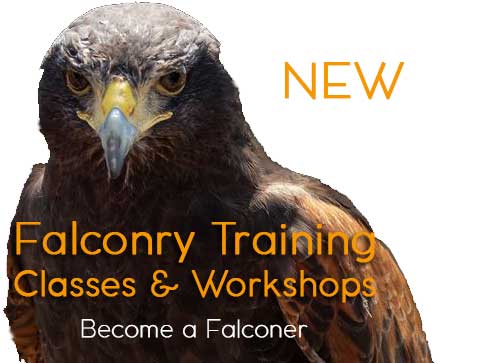
When is it time to call in a Wildlife Removal Specialist?
If you’ve noticed raccoons and other wildlife frequenting your property, they may have made a den in your shed or near your garden or even in your house. This is bad news for you and your family. Not just because these animals can be a nuisance, but also because they can pose a health and safety hazard.
Before the winter weather hits and they make their way into your home for warmth and shelter, it’s important to remove any invitations to unwanted wildlife from your property. Your best option is to call a wildlife control company professional. Only a designated professional has the knowledge, training, expertise, and tools to handle unpredictable wildlife.
Why Call Hawkeye for Wildlife Removal?
Hawkeye Bird and Animal Control uses a number of effective passive and active removal methods to get rid of wildlife and keep them off of your property for good.
We are the only pest bird and animal/wildlife control company in the country designated "Certified Wildlife Control Professional" and in possession of licences and permits that enable us to euthanize pest animals in accordance with the Canadian Veterinary Association’s standards, if the client so desires.
We can also set up a one-way exit device to allow wildlife to exit your property carefully and safely without causing any harm to you, the animals, or your structure. Our expert, licensed technicians can employ a number of safe, humane, and effective live trapping methods.
See more reasons why hiring a professional wildlife trapping service provider is essential »
Why Is Wildlife Removal Important?
Below are some of the main reasons why it’s important to remove pest animals and unwanted wildlife from your property:
- They Cause Damage To Your Home or Business
Wildlife can cause severe damage by chewing wires, drywall, and even the roof to gain access to food and warmth. Without attending to it now, this destruction can result in structural damage, leading to costly repairs and replacement. Urine and feces from these creatures will also damage drywall and insulation. - They Pose a Health Risk to Humans and Pets
As mentioned above, All wildlife poses a health risk to humans. Raccoons, among other pests, can bring in dangerous diseases such as rabies and raccoon roundworm, leptospirosis, canine distemper. Skunks can carry an array of parasites and infection similar to raccoons that can be transferred to humans and domesticated pets from direct and indirect contact. - They Make Annoying Noises
Aside from the more serious risks, wildlife is known to make noise not only through their “voices” but through their constant movement. There is nothing more distracting than hearing tiny feet scuttling about in your attic or the screeching and chatting of wildlife in your walls. - They Can Attack You
Ignoring wildlife is not an option, as raccoons, squirrels, skunks, and even coyotes that have settled in your yard can help these animals become fearless of human interaction. Allowing them to become territorial so close to your home, especially if they have offspring, is asking for trouble.
How Can I Animal-Proof My Home?
Animal-proofing a home should be part of a homeowner’s regular fall clean-up schedule. Here are some tips to animal-proof your home.
- Start Animal Proofing by Late Fall
Now is the perfect time to animal-proof your property. As the colder weather sets in, pest animals will begin looking for warmth and shelter…and your home is the perfect place to make a den. By preventing animals from making your home their home, you can avoid a headache come winter. - Repair Cracks in the Exterior of Your Home
Check for any small cracks or openings where even the tiniest creatures could snuggle into for the long winter ahead. Specific spots to investigate are exterior doors, windows, siding, soffit, foundation, chimney, and roof shingles. - Secure the Outer Structures of Your House
Garages, sheds, and other structures are the perfect hiding spots for a variety of wildlife. Patch any holes, cracks, roofing, or other openings before cleaning the inside to remove any nests. Wire netting at the base of a shed or deck will prevent any animal from digging to burrow underneath. - Stop Feeding Birds
If you’re a bird lover, you might enjoy watching the cardinals, blue jays, and black-capped chickadees through your home windows. You may even have bird feeders and bird baths in your garden. But it is this common practice that attracts unwanted wildlife, especially raccoons and squirrels. Having raccoons, squirrels or rabbits around your backyard may be an invitation to coyotes. Remove all bird feeders or other food sources near your home to prevent wildlife from setting up house in yours. - Secure Air Vents
When sealing openings around structures, secure air vents with a protective animal-proof screen or specialized vent guard. Include chimney openings in your inspections. Extra protection can prevent nesting inside the roof, walls, and attic which leads to the destruction of insulation, drywall, and wiring. - Lock Trash Cans
We’ve all experienced the crafty ways that pests, particularly raccoons, can infiltrate garbage cans to secure food. Secure all garbage cans and food waste bins with a lock strap to prevent wildlife from dumping out the trash. - Call On the Experts at Hawkeye Bird and Animal Control
Hawkeye Bird and Animal Control services residential, commercial, and industrial properties in the Greater Toronto Area and Golden Horseshoe. Unlike other wildlife control services in the GTA, Hawkeye holds the following licenses: Trapping of Fur Bearing Animals Permit, Falconry Permit, and Pest Control License and certification in Wildlife Control Professional. This allows us to employ control methods in addition to relocation of captured raccoons.
Our services include animal and bird control, falconry experience, balcony cleaning and netting, cleaning, and exclusion. We guarantee results and offer permanent solutions that exceed the capabilities of our competitors.
Need help? Email us at [email protected] or call us at (416) 429-5393 or toll-free at 1-(855) 393-4295.














